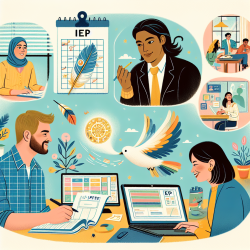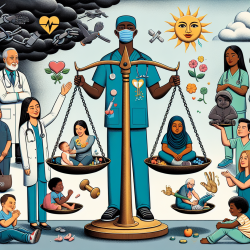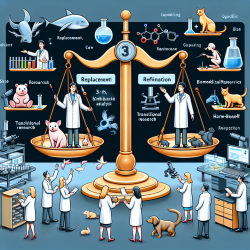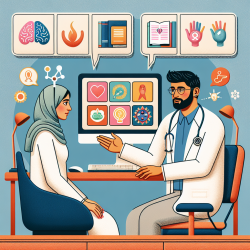Introduction
In the dynamic field of speech-language pathology, practitioners are continually seeking methods to enhance their skills and improve outcomes for children. The recent research titled "Humanitarian crisis amid the military coup in Niger republic; what went wrong?" provides valuable insights that can be adapted to our field, emphasizing the importance of data-driven decisions and evidence-based practices.
Understanding the Research
The study conducted by Oduoye et al. (2024) delves into the humanitarian crisis in Niger, highlighting the multifaceted causes and consequences of such crises. While the context is different, the underlying principles of analyzing complex problems and implementing strategic solutions can be applied to speech-language pathology.
Key Takeaways for Practitioners
- Data-Driven Decisions: Just as the study uses comprehensive data to understand the crisis in Niger, speech-language pathologists should rely on data to inform their clinical decisions. Utilizing assessments and progress monitoring can ensure that interventions are tailored to each child's unique needs.
- Comprehensive Analysis: The research emphasizes a thorough analysis of the crisis's causes. Similarly, practitioners should conduct detailed evaluations to identify all factors affecting a child's communication abilities, considering both linguistic and non-linguistic influences.
- Collaborative Approach: The study suggests international cooperation as a solution to the crisis. In speech-language pathology, collaboration with educators, families, and other professionals is crucial to creating a supportive environment for the child.
Encouraging Further Research
The research by Oduoye et al. serves as a reminder of the importance of continuous learning and adaptation. Practitioners are encouraged to engage in ongoing research and professional development to stay abreast of new findings and methodologies that can enhance their practice.
Implementing Research Outcomes
To effectively implement research outcomes, practitioners can:
- Participate in professional development workshops focused on the latest research in speech-language pathology.
- Engage in collaborative research projects to contribute to the field's knowledge base.
- Utilize technology and online platforms, such as those provided by TinyEYE, to access up-to-date resources and connect with other professionals.
Conclusion
The insights gained from the research on the humanitarian crisis in Niger can inspire speech-language pathologists to adopt a more analytical and collaborative approach in their practice. By leveraging data and embracing continuous learning, practitioners can create better outcomes for children, ensuring that each child receives the support they need to thrive.
To read the original research paper, please follow this link: Humanitarian crisis amid the military coup in Niger republic; what went wrong?










